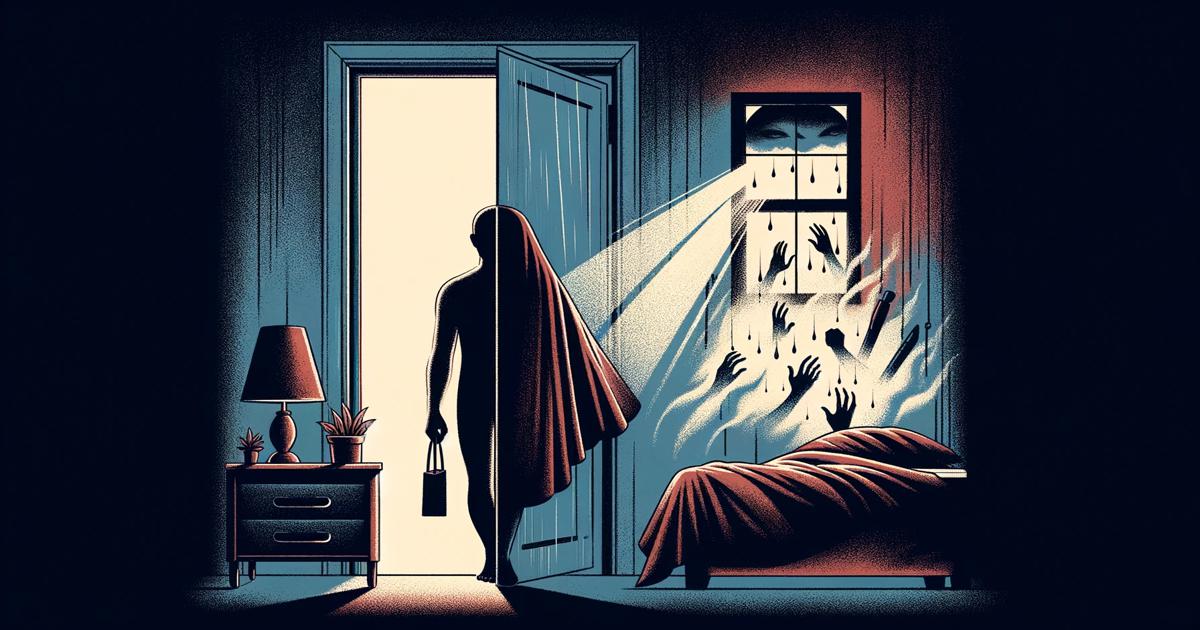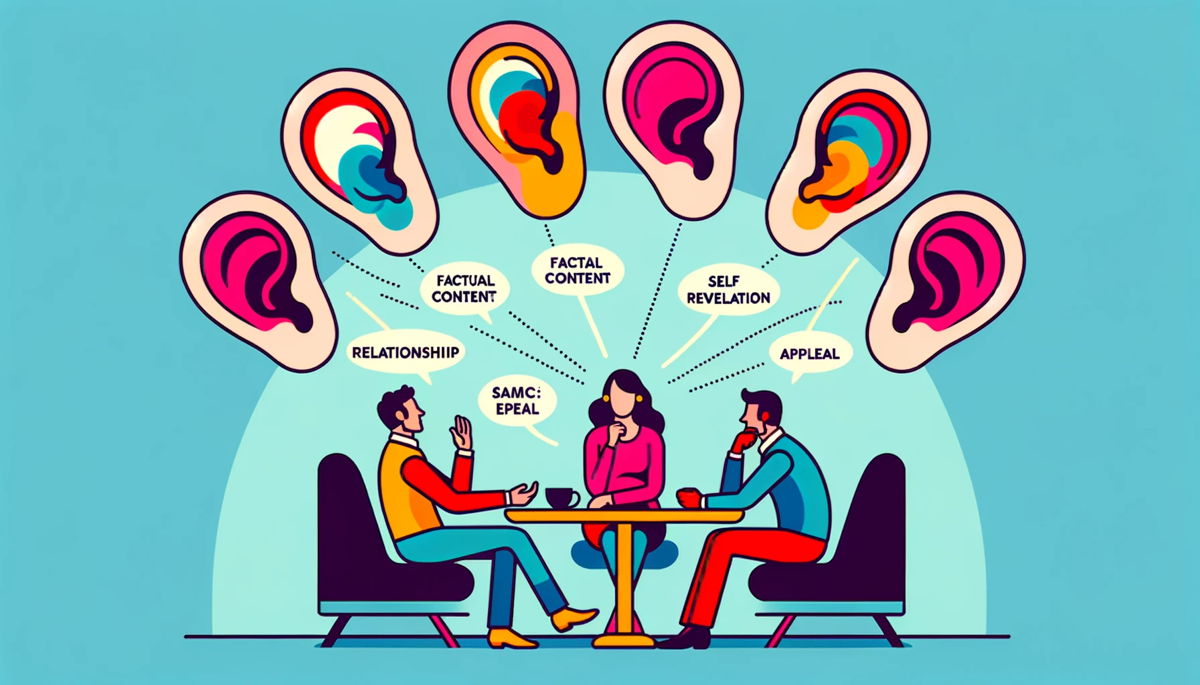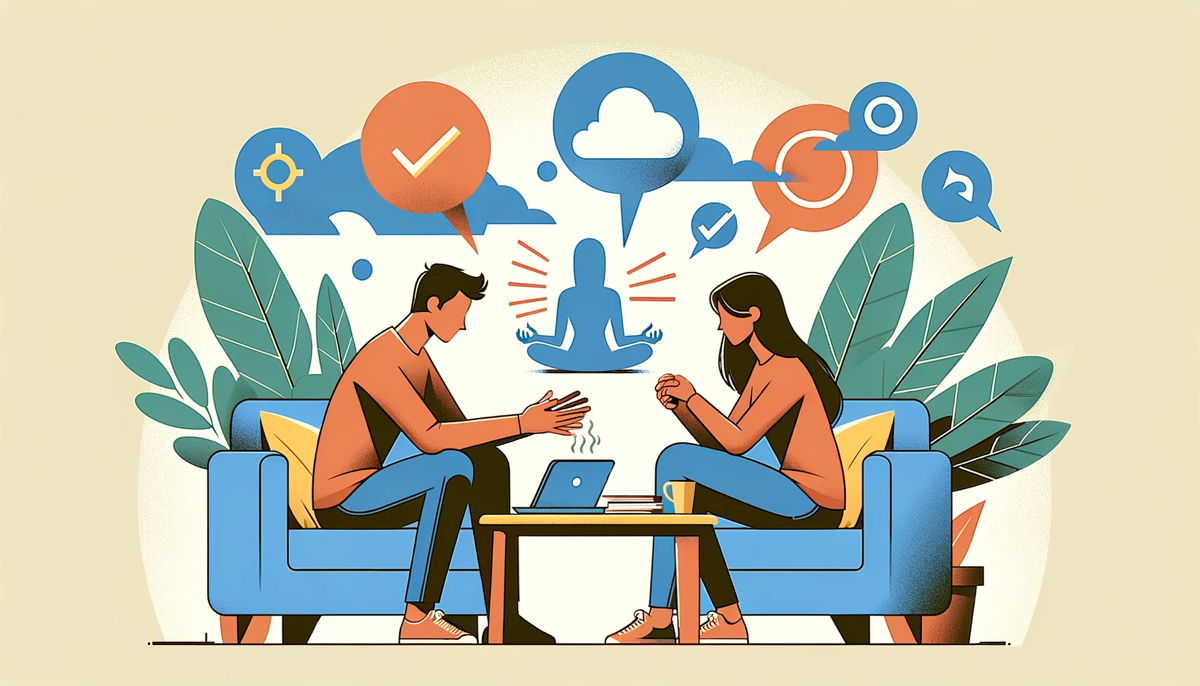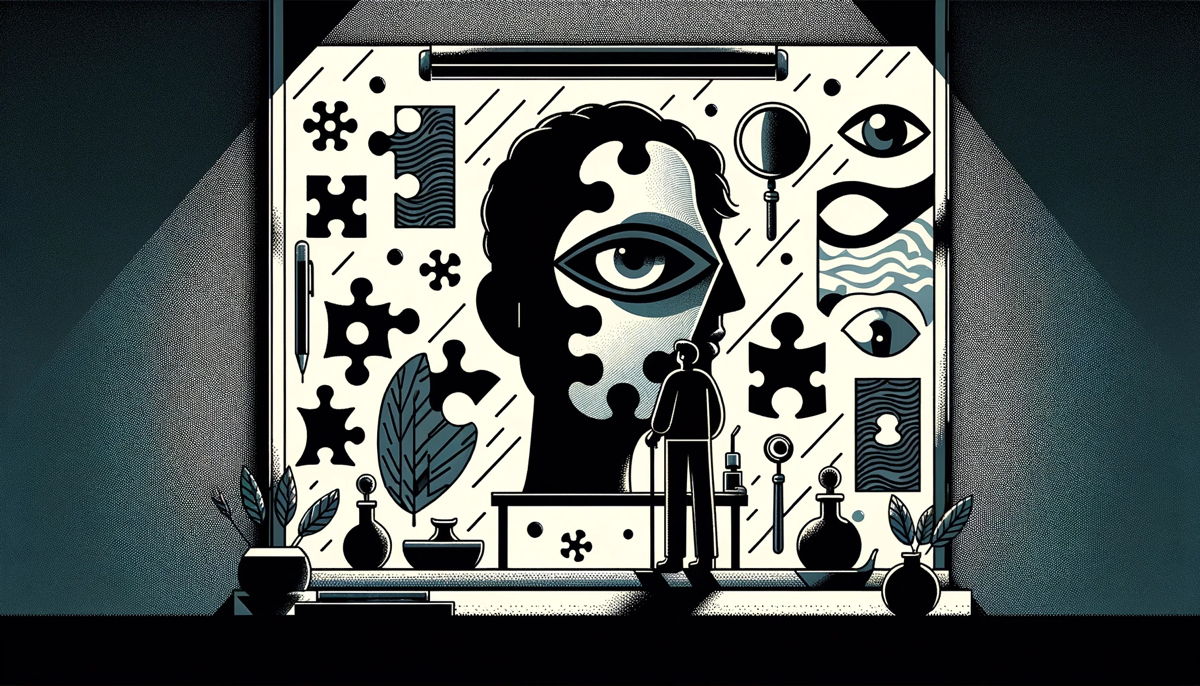2012
Children need Fairy Tales – a Plea for Santa

I recently had a conversation with a dear friend and colleague with the propensity to second-guess herself. The occasion was this year’s December 6th – traditionally her family’s day to celebrate Saint Nicklaus Day with friends. On those occasions, my friend’s neighbor appeared as Santa to both her children (who are eight and six years old, by the way). The older son grew increasingly suspicious because it had occurred to him that the neighbor always showed up late because something urgent had come up and therefore he “missed” Santa’s visit. “I bet there is no Santa Claus, that is probably Christian from next door”, he self-importantly told his little sister.
Continue reading ...
Tough Time for Realists

I have always thought that our modern world tends to fit certain ipersonic personality types rather more than other profiles. Ursula Huber’s lead article in the recent “Psychologie Heute” (Psychology Today) again reminded me of this subject and in a way confirmed my reflections. In her intro she writes: “The world is an uncertain place. One cannot depend on anything any longer: not on the Euro, not on love, not on politicians, not on job security.” And she quotes the psychologist Ernst-Dieter Lantermann at Kassel University who summarizes: “ Modern living conditions are precarious living conditions.”
Continue reading ...
13 new Tips to beat the threatening Seasonal Affective Disorder

On the occasion of the first days of November - giving us the first serious beginning of winter in Germany! – I have yet a few more tips designed to help you face the blues brought on by the cold outside! Below you’ll find an entire assortment of new suggestions for making the best of autumn. (It goes without saying that the tips in my previous article on the subject “autumn” remain valid – fortunately something like that won’t expire).
Continue reading ...
Animals as Therapists: how Cats, Dogs and Co. benefit the Soul
02/11/12 by Felicitas Heyne | Filed in: Psychology

I admit: I am biased. Animals have always played a predominant role in my own life. I could not even imagine my life without at least one cat being with me. One of the reasons may well be that I occasionally resort to four-legged assistants when working with clients when the occasion arises – and usually with decidedly positive results.
Continue reading ...
13 Tips for Fighting Seasonal Affective Disorder

Well, there is no denying it any longer: Fall is upon us. It officially began on September 22th (an astronomical perspective). The days are already beginning to be noticeably shorter. The first trees are starting to change color and although the days are often still comfortably warm and sunny, the nights are already cool. As the pop group A-ha used to sing: “summer moved on”.
Continue reading ...
Flirting Online will ruin your Relationship
16/10/12 by Felicitas Heyne | Filed in: Love

Porn sites are not today’s sole web sites interfering with real relationships. Other online-overtures are also busy creating the illusion of a maximal availability of never-ending supplies of alternative partners and in that way secretly, clandestinely and through the back door undermine actual relationships. Flirting exchanges, chat rooms, news groups, online role-playing, and social networks – wherever one looks, everywhere alternatives to vanilla sex at home. It was never any easier to experience the security of a real relationship and the titillation of flirting and cheating at the same time. A tempting opportunity to thumb one’s nose at every day’s stress. My husband is more interested in the super bowl than in me and has once again forgotten to bring the soda along? Let‘s just see if I can’t find more willing partners for a conversation on Facebook. My partner is constantly griping at me and is rarely interested in sex? Why not register at Match.com just for fun, just to see what my chances are . . .
Continue reading ...
Is the Internet a Relationship Killer?
13/09/12 by Felicitas Heyne | Filed in: Love

When the internet precursor the so called ARPANET was initially deployed in 1969 on behalf of networking among universities and research institutions, no one probably even suspected that this represented the beginning of a development that would end up exerting a decisive effect on love relationships around the globe. In 1990 the U.S. National Science Foundation decided to harness the Internet for commercial purposes. It was at this point in time that the public gained access – a development that was rapidly accelerated by the market maturity of first graphics compatible web browsers. Subsequently commercial offerings as well as its user numbers exploded. The digital revolution was in full swing. Beginning with the year 2000 the proliferation of broadband connections with high data transmission rates also enabled the transmission of movie files – some movie files!
Continue reading ...
Women and Depression
03/09/12 by Felicitas Heyne | Filed in: Psychology

In its September issue the German periodical “Psychologie Heute” features a very interesting excerpt of the latest book by Ursula Nuber. It's called: “The relationship syndrome – why women become depressive and men are not really at fault.” The fact that worldwide twice as many women than men suffer from depression has been known for a long time. Experts have speculated about the possible causes for this unequal distribution among the genders for almost as long. Subject of discussions is women’s greater disposition of discussing psychological problems (and thus they are more likely to be diagnosed as being depressive), hormonal irregularities (catch-word PMS or Menopause) and also women’s more frequent inclination of questioning themselves and then getting caught up in unproductive brooding-loops. All of it correct and plausible but I believe that the explanation presented by Ursula Nuber’s approach in her book is actually a lot more exciting: namely women’s stronger relationship orientation as a stress- (and in the long-term depression) trigger.
Continue reading ...
Little Secrets Sustain Your Partnership
21/08/12 by Felicitas Heyne | Filed in: Love

“We keep no secrets from each another!” – “In a good relationship one partner tells the other all about him/herself.” Its heart-warming to hear these or similar sentiments from some couples. And at first one may even think: Great! when there is that much openness and honesty present in a relationship! Careful: Psychologists and couple therapists increasingly come to the conclusion that it is not all that wonderful when partners know everything about each other. Everyone should retain some secrecy. However, which secrets are constructive and benefit the relationship and which ones are those that are destructive and jeopardize love?
Continue reading ...
Why You Should Start a Love Diary
07/08/12 by Felicitas Heyne | Filed in: Love

Today I would like to introduce a neat idea that I swiped from Jennifer Louden and that I like to use in the course of my couple therapies. In case you feel like it and if you happen to be in a relationship as you read this, you may want to try. It is perfect for touchy subjects, particularly points that continually provide causes for arguments and also for times when one does not see all that much of each other and there is never enough time for conversations. One can also use this idea for its very own sake simply as an additional way of communicating with each other without any major problems in the relationship, just to kind of document the relationship or even just because its fun.
Continue reading ...
How to Have a Healthy Argument and Save Your Relationship
30/07/12 by Felicitas Heyne | Filed in: Love

For many of us next to our job, the partnership is the second important mainstay of life. It determines whether we tend to be happy and satisfied rather than unhappy and frustrated. As a couple one can spend a weekend just like the one just past together in many different ways which then reflects this morning’s start into the new work week. How did it go with you? Harmonious, well-balanced, energizing, inspirational, relaxing, active? Or is it with you like with so many others: One is really looking forward to a free weekend together but somehow one still always ends up in some stupid argument about something trivial that spoils part of the relaxation? In that case you are not the exception: In more than a quarter of all relationships arguments during the vacation or days off are a common occurrence; in four of five relationships it happens at least frequently.
Continue reading ...
Communication Skills Part 2: Pay Attention, catch the Meaning!

Do you remember the first blog entry about communication skills? You may have already figured out with which one of the four “ears” you hear best? Or which of the four aspects are pivotal, when you “send” a message yourself?
Continue reading ...
How to Dominate your Inner Drivers

You may still remember the blog posting where I introduced you to the five inner drivers defined by the transaction analyst Taibi Kahler as being typical for human self-control. Today the subject will deal with enabling you to put your personal inner drivers in their place when they tend to overdo driving you.
Continue reading ...
Communication Skills Part 1: You don’t hear what I say . . . or vice versa

Just as there are different personality types, there are naturally different ways to communicate. An extroverted person talks a lot, preferably about him/herself, easily establishes contact and generally has no problem to assimilate lots of information. An introverted person, on the other hand is more reserved, does not reveal a lot of him/herself and tends to retreat in the face of too much exterior stimuli. Over time, in the course of this blog we will deal with communications idiosyncrasies of the different types. There are two objectives: First of all it helps to recognize how someone prefers to communicate because then one is able to adjust to his/her respective style and there is a better chance for a productive exchange. Secondly it is always interesting to analyze one’s own communication strengths and weaknesses and possibly tweak them a little to be more successful in everyday life and become more confident in dealing with others.
Continue reading ...
Bringing Body and Soul into Harmony
25/04/12 by Felicitas Heyne | Filed in: Happiness

Body and soul are not independent but influence one another. You probably already know that about yourself: When you are sick and feel weak and tired, your mood is rather more gloomy and you don’t feel nearly as ready to face challenges as you do when you are healthy. Conversely, that which moves your soul also reflects in your body: When you are happy or proud your posture generally tends to be rather more erect, you hold your head high and appear to be taller. On the other hand, sadness or shame literally push us down: We double over, hang our head and shoulders and somehow become smaller. So much for the generalities. Continue reading ...
Stress and Relationships Part 2

In my previous article on the subject Stress and Partnership I already reflected on about how much your partnership can be taxed by stress. As promised, here are now the first ideas illustrating what good stress management in the relationship can look like. Most of them are out of, or are based on the already mentioned book by Guy Bodenmann (that I would like to again recommend in the strongest terms, but unfortunately only exists in German). Continue reading ...
Stress and Relationships

We generally tend to be unaware that all those major and apparently unimportant everyday stress experiences cumulatively have an impact on us and that includes an impact on our relationship: A strenuous, time consuming day at work, demanding children, the partner’s varying needs and sensitivities, hassles with the colleagues and/or the relatives plus all those small annoyances like the washing machine giving out, a missed appointment, noisy neighbors, a traffic jam on the way home, the lost wallet ...
Continue reading ...
My Blind Spot - The Difference between Self-Awareness and External Perception

iPersonic continuously deals with the question of one’s own personality and identity and how we see others and ourselves. This represents the intriguing question as to how much and to what extent we are even capable of truly assessing ourselves. Where do we see ourselves as we actually are and how others perceive us? And where may we possibly even be incapable to see ourselves as we really are?
Continue reading ...
How to quickly ruin even the best Relationship
16/02/12 by Felicitas Heyne | Filed in: Love

In the course of his studies with couples the relationship researcher John Gottman identified five behaviors that he actually christened the “The Five Horsemen of the Apocalypse”. According to his research, the Horsemen of the Apocalypse represent communication patterns with a sufficiently destructive influence that, if given a free reign, almost pre-ordain the demise of even the most perfect relationships. In case you are living in a relationship – or are entertaining the thought to do that (again) – it would probably be beneficial to identify these threatening creatures and in that way get a bead on your mutual enemies. That gives you the opportunity to unmask and banish these harbingers of doom while you still have the chance! Continue reading ...
Are introverted and extroverted Partners a Match?

Relationships between extroverts and introverts are not all that rare. Seriously, it can work - even in long term relationships. Continue reading ...
A Word about Panic Attacks and Anxiety Disorders
25/01/12 by Felicitas Heyne | Filed in: Psychology

A subject that I have not yet (to my very own surprise) discussed in this blog: anxiety disorders. Something that frequently surprises me personally is the fact that this psychological disorder is during a patient’s first visit to his/her physician frequently not at all or incorrectly diagnosed. Instead, patients are very often handed antidepressants – or if it happens to be a homeopathically inclined physician – treatment with St. Johns Wort or something similar is then recommended. At first I thought this was a random phenomena in my practice but according to what I have been reading that is apparently not the case. In the course of a study a professor for psychosomatics at Witten University determined that it usually takes seven (!!) years for this disorder to be properly treated – and – even more bewildering to me – that “even psychiatrists prefer diagnosing a depression as anxiety disorder.” It is a fact that anxiety disorders are the most prevalent psychological disorders of women and that at one point or the other in their lives 15% of all Germans are diagnosed with an anxiety disorder and I have decided that it is high time for me to post a few blog contributions on the subject! Continue reading ...
What is Personality?

Philosophers, authors and scientists have been challenged since ancient times by the question as to what constitutes human personality. The physician Hippocrates (460 – 377 BC) developed one of the oldest personality models we know. He divided humans into four different temperament types: sanguine, phlegmatic, choleric, and melancholic and attributed not only certain character traits but also the propensity for certain diseases to each of them.
Continue reading ...
Do you know your Drivers?
02/01/12 by Felicitas Heyne | Filed in: Personality

During the course of my continuing education I recently came across the concept of the so-called „Drivers“ that immediately downright fascinated me. This concept originates from transactional analysis (a theory dealing with the human personality and a related psychotherapeutic procedure). The “Drivers” are a model for inner patterns, one could also call them motivators: they influence our thinking, feeling and behavior. As so many of our inner patterns they also date back to our infancy; they basically represent the voices of external authorities (primarily those of our parents but also those of teachers, other important persons or society in general). Step by step, we tend to internalize the demands and expectations of these authorities to the point where they become an integral part of our very being. Continue reading ...